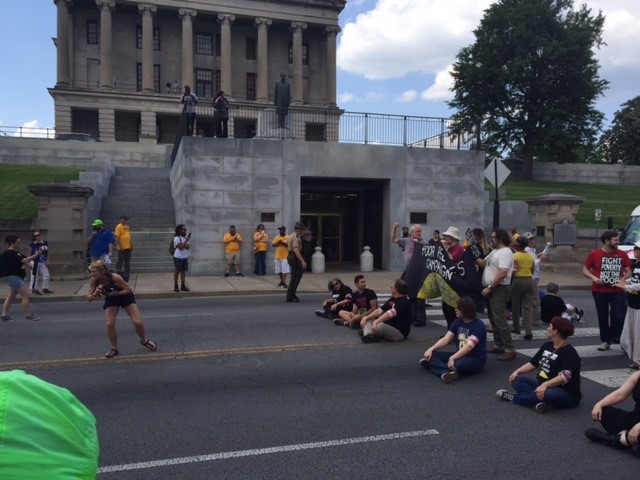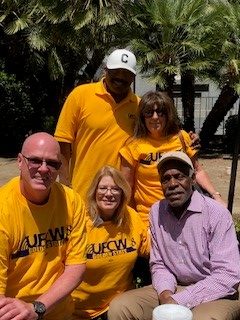

Week two of the Poor People’s Campaign (5/21 – 5/26) is themed “Linking Systemic Racism and Poverty: Voting Rights and Immigration.” UFCW members around the country, from Washington state to Boston and Harrisburg, joined allies to bring attention to these issues that are affecting Americans from all corners of the U.S.
Founded by Rev. Dr. William Barber II and Rev. Liz Theoharis, the Kairos Center for Religions, Rights and Social Justice at Union Theological Seminary, and hundreds of local and national grassroots groups, The Poor People’s Campaign is uniting tens of thousands of people across the country to challenge systemic racism, poverty, the war economy, ecological devastation, and the nation’s distorted morality.
“The Poor People’s Campaign believes, as our union family does, that our economy can and should work better for everyone,” said Marc Perrone, president of the UFCW International, in a statement of support he made in April.
“Telling the millions of people who are struggling alone, to work harder, complain less, or pray more won’t work.
“Wage inequality, the assault on voting rights, underemployment, and the attacks on immigrant and refugee communities are all part of a systemic effort to disenfranchise poor communities.
“We’re proud to support The Poor People’s Campaign because, if successful, it will bring hard-working families more power to build better lives.”
Over the last few months, the Revs. Barber and Theoharis have traveled across the country, shining a spotlight on both America’s harsh, persistent poverty and the powerful organizers working to combat it. They’ve visited Lowndes County, Ala.; Detroit and Highland Park, Mich.; Marks, Miss., Harlan County, Kent.; and South Charleston, W. Va.
The trips have also helped prepare organizers in the states for the 40 days of action, which will conclude with a mass mobilization at the U.S. Capitol on Saturday, June 23.
On Tuesday, April 10, 2019, the Institute for Policy Studies (IPS) released The Souls of Poor Folk, an audit of America 50 years after Dr. King and many others launched the original Poor People’s Campaign to challenge racism, poverty, and a host of other intersected issues.
The report, which was presented at the National Press Club by IPS with support from the Urban Institute, shows that, in many ways, we are worse off than in 1968. Legislative actions and legal decisions have gutted the Voting Rights Act and severely restricted the ability of people of color, women, and young people to vote. There are 15 million more people living in poverty and nearly eight times as many inmates in state and federal prisons.
